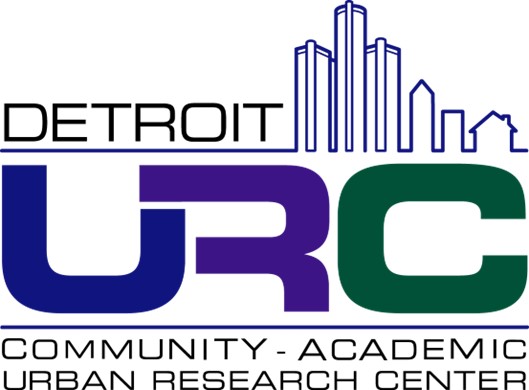
In this issue, we feature one of our newest board members, Randy David, a public health administrator, researcher, and advocate. His interests lay at the intersection of population health, research/healthcare administration, public health legislation, and healthcare supply chain logistics. Randy oversees Epidemiology, Communicable Disease, and Investigations at the Detroit Health Department. Prior to his position at the Detroit Health Department, Randy was employed by the University of California. He received his Ph.D. from the University of Kansas. He has interests in migrant health, and equitable and ethical representation in genomic/pharmaceutical research. He has worked to improve health in communities in New York, Kansas, Alaska, Michigan, Texas, California, Mexico, the Dominican Republic, Peru, Ethiopia, and other locations.
How has the Detroit URC helped you advance your organization’s mission?
The Detroit URC has helped the Detroit Health Department (DHD) get more involved within the Detroit community. The Detroit URC has given the DHD access to many resources and allowed me to be a better coordinator by extending my network and broadening his perspective of what resources are available. The Detroit URC pulls in people with diverse perspectives and makes the challenge of pulling together academic sciences with community members seem easy. It is a great example for collaboration between academics and the community to create actionable research.
What do you gain from serving on the Board?
From serving on the Board of the Detroit URC, I gain a unique perspective into public health communications and how compromise is made and how initiatives get done at a grassroots level. It has taught me about getting down to the foundation of compromise and respecting diverse opinions. The Detroit URC Board exemplifies what a back and forth understanding rather than a top-down academic lecture looks like when combining academic institutions with community organizations.
What initiatives are you currently working on?
Currently, a lot of my time is spent working on the COVID-19 pandemic. This work includes: providing data and crafting guidance around changing epidemiology, focusing on those at the highest-risk such as those in nursing homes, long-term care facilities, schools, correctional facilities, homeless shelters. I am also working on other issues of public health such as maternal health and infant mortality, lead poisoning, violence prevention, and opioid surveillance in addition to working on health communications and improving public messaging so as to make it intelligible and simple.
What are your organization’s goals for next year?
The Detroit Health Department has many goals for 2022. The main one for me is incorporating the COVID-19 response into their more general response as a health department and incorporating it into a broader system of infectious diseases. We also are aiming to expand resources for chronic disease such as diabetes as well as obesity and hypertension. Overall, the Detroit Health Department wants to build trust within their community by incorporating various community organizations into their work and integrating ourselves into the community.
What are you most excited about in your new role?
I’m most excited about the ability to use the experiences of Detroit’s residents to benefit the broader population of Detroit. More specifically, to learn about what struggles some individuals have, and use that to directly respond to them and to create a safety net so the same experience doesn’t happen to the rest of Detroit’s residents. On a more actionable level, I am excited to create public health policy that directly responds to public health issues faced by individuals in Detroit and prevent those that are at risk for the same situation.
What do you wish more people understood about the Detroit Health Department?
I want the Detroit Health Department to be viewed as a switchboard that doesn’t always have every resource but we should know who does. We can connect to community organizations, healthcare facilities, academic institutions, and industries to help improve the public health of the Detroit community.



